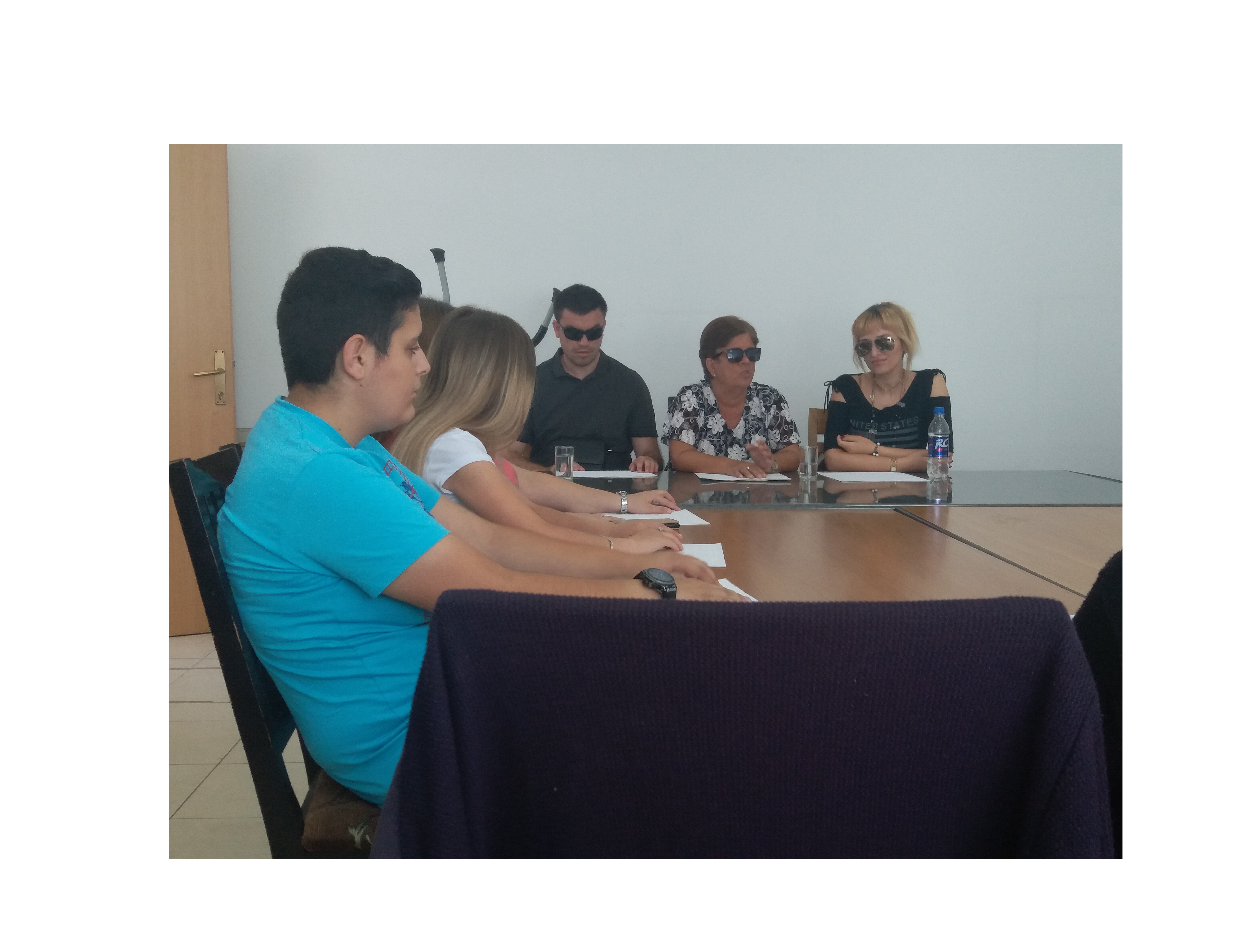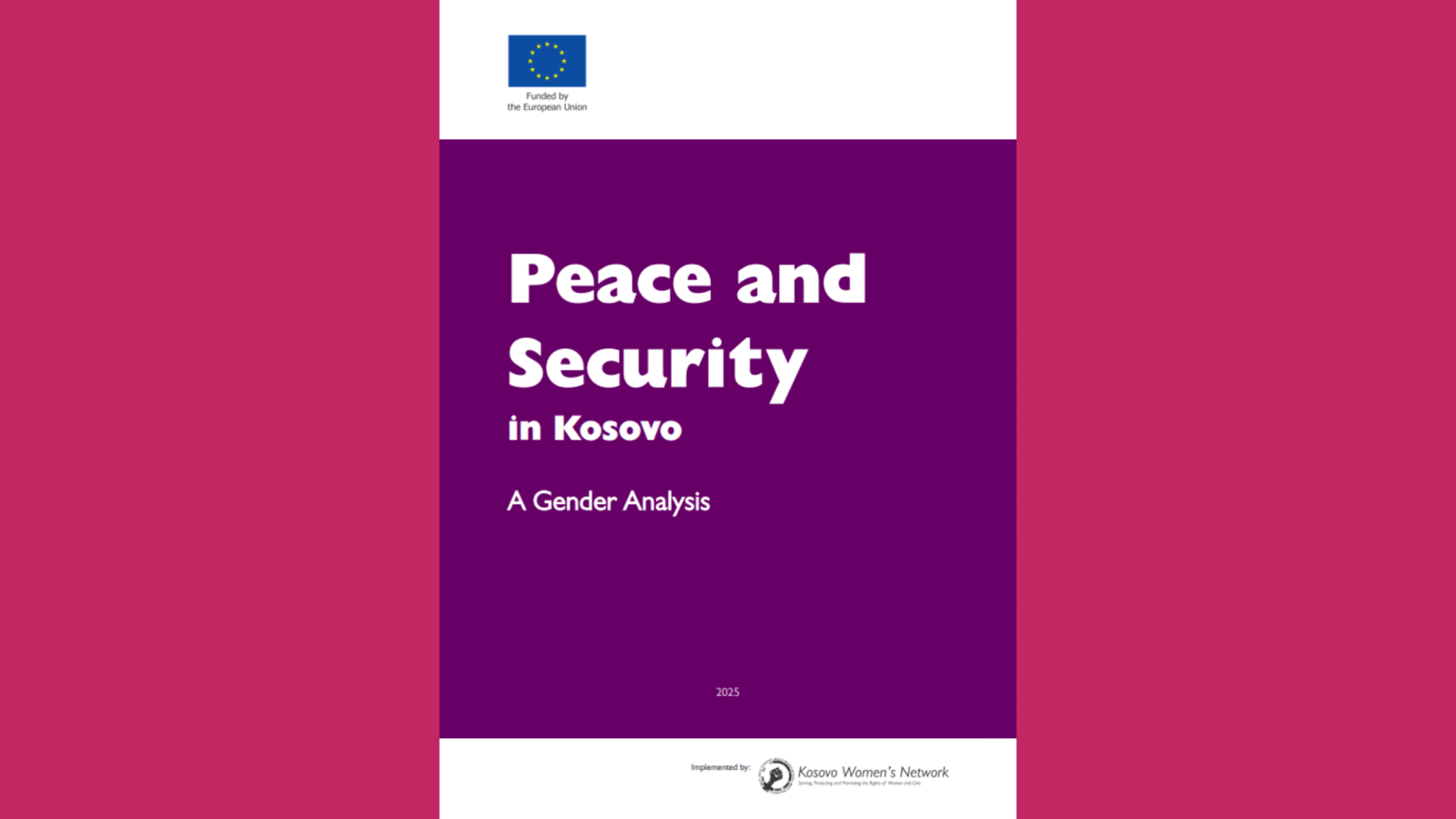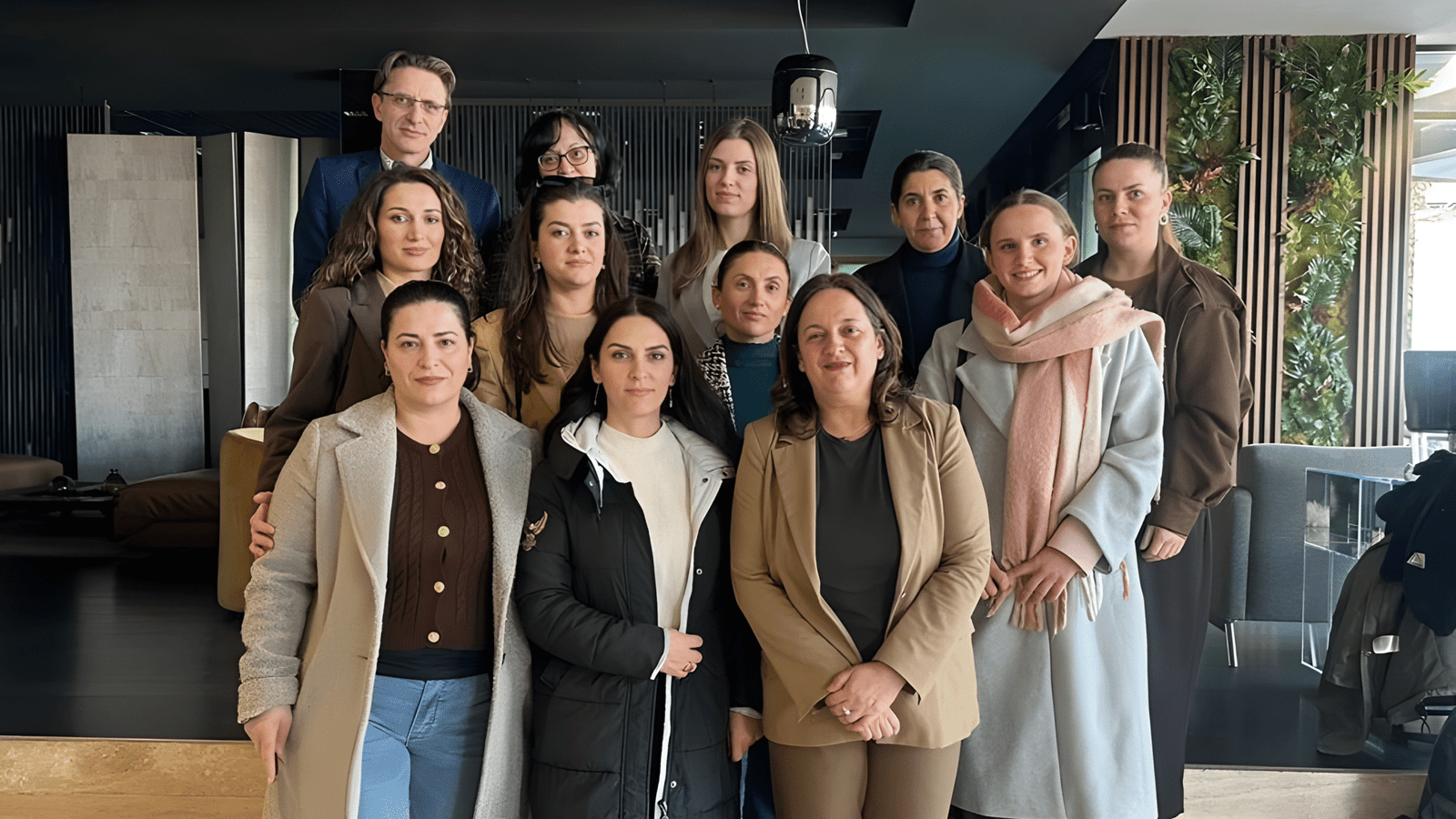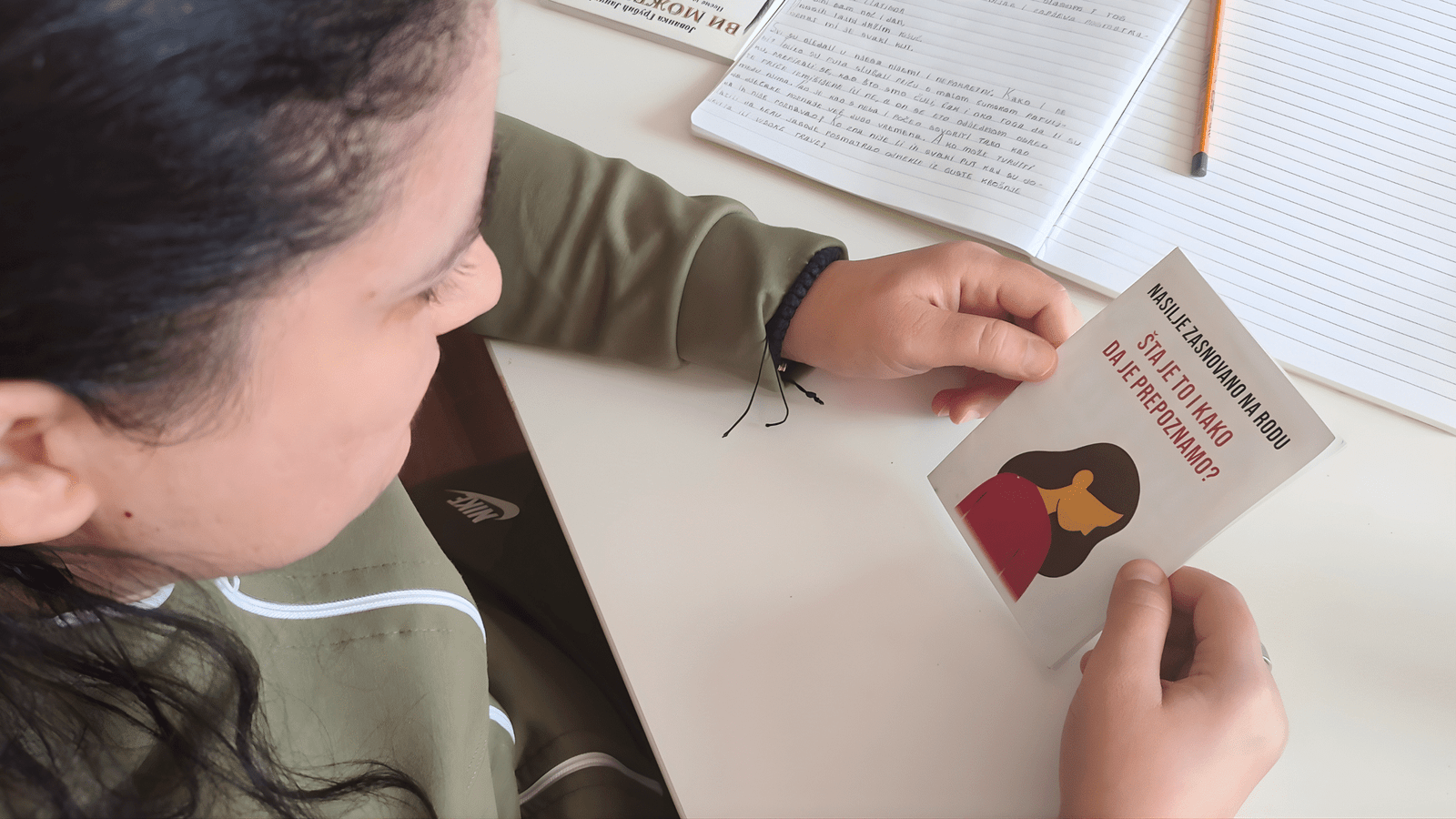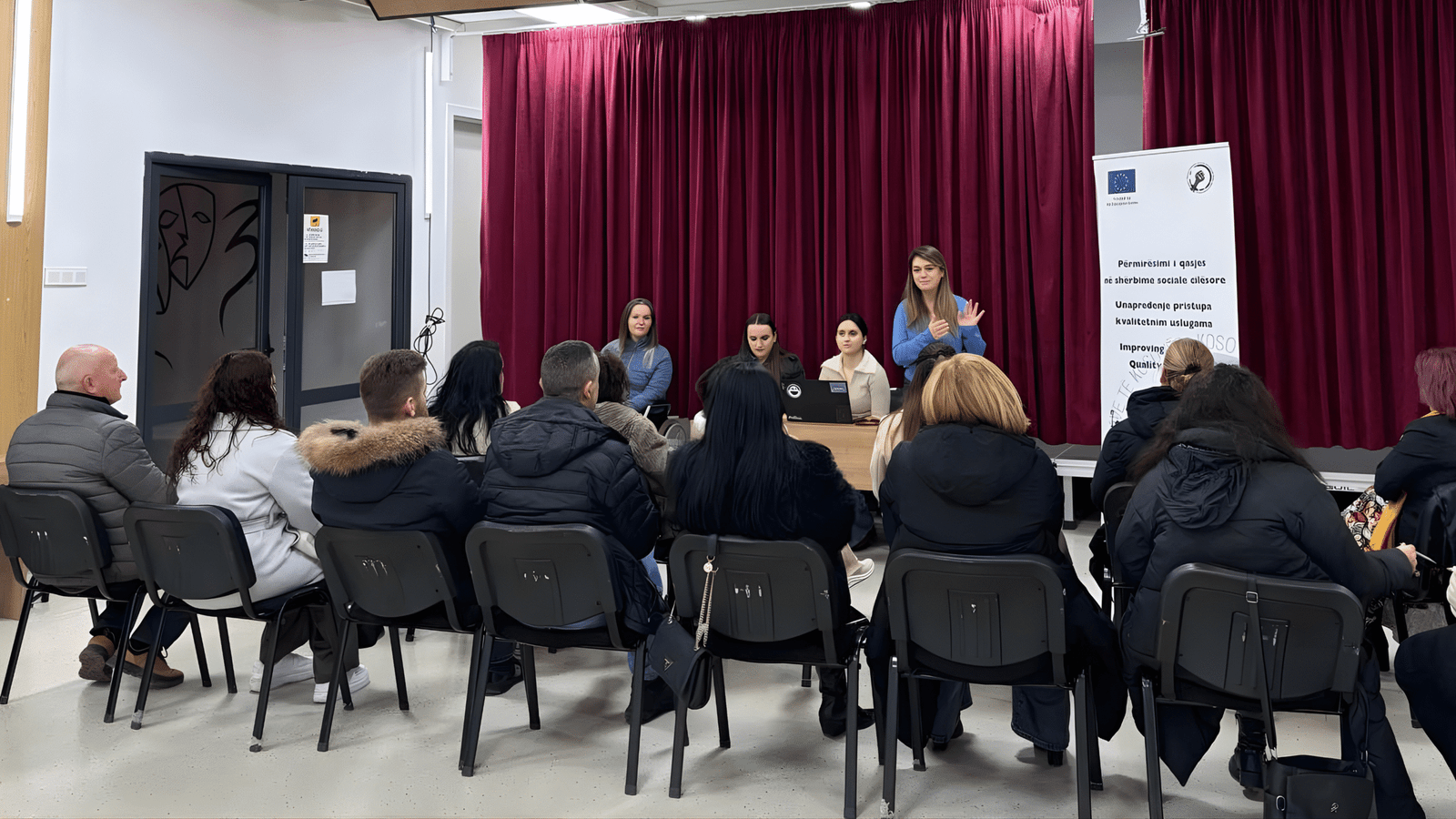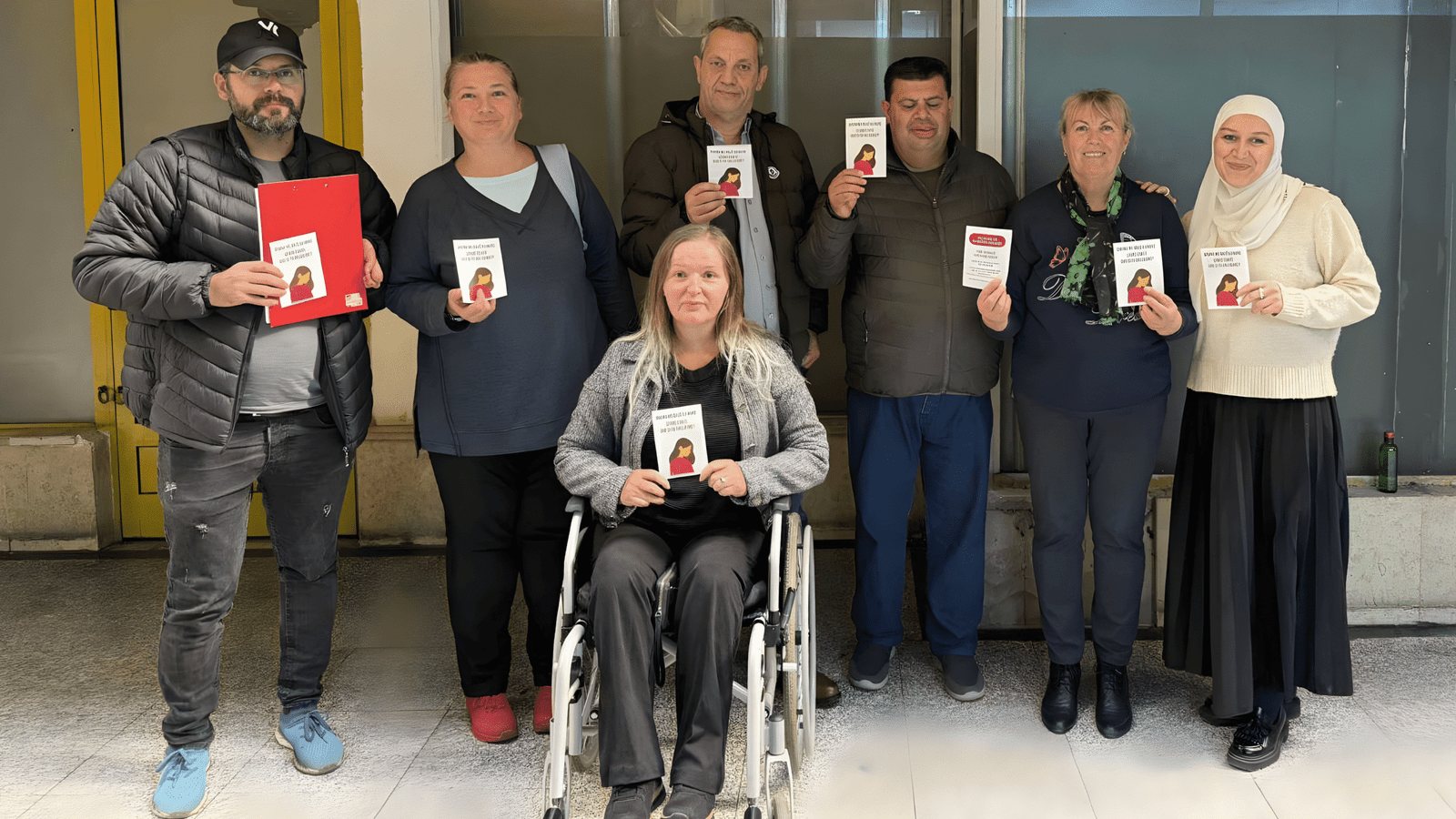On 15 August, the Committee of Blind Women of Kosovo (CBWK) held in Pristina a training on blind women’s empowerment in the framework of the project titled “More rights for blind women”, attended by 15 blind women, men and children from the Municipalities of Pristina, Gjilan, and Ferizaj, and representatives of CBWK and Kosovo Women’s Network (KWN).
The project aims to advocate at the Ministry of Education to create better conditions for the education of women and blind persons in general. Through this project, CBWK also aims to raise the awareness of the greatest possible number of blind persons, their family members, and representatives of various institutions concerning the blind persons’ rights to education.
CBWK Director Bajramshahe Jetullahu opened the training emphasizing that, “The number of blind persons studying in universities is considerably higher compared to previous years; however, the lack of Braille-written literature is still a great challenge as it prevents students from progressing thus leading to them putting a stop to their education”.
Trainer Halil Kurmehaj informed the attendees, among others, of Law no. 04/L-092 and the rights guaranteed by this law. “Although not accurately known, the number of blind and visually impaired persons in Kosovo is estimated to be somewhere around 2500. Lack of accurate data on the number of blind persons demonstrates the lack of interest of local government institutions in dealing with this highly sensitive category of people. For this reason, I believe that it is the obligation of all of us to raise our voice and demand the rights that the law guarantees to us”.
The blind persons requested that more work be done by the institutions and the society so that this category is provided with a better life and higher living standards.
"Every day, from sunset to evening, the blind persons face with numerous difficulties such as lack of pavements, Braille-written books, etc. A very small number of blind persons are employed, and this also has an impact on their economic and social situation”, one of the attendees said.
This project is supported by the Kosovo Women’s Fund (KWF) of the Kosovo Women’s Network (KWN) and funded by the EU Office in Kosovo.

